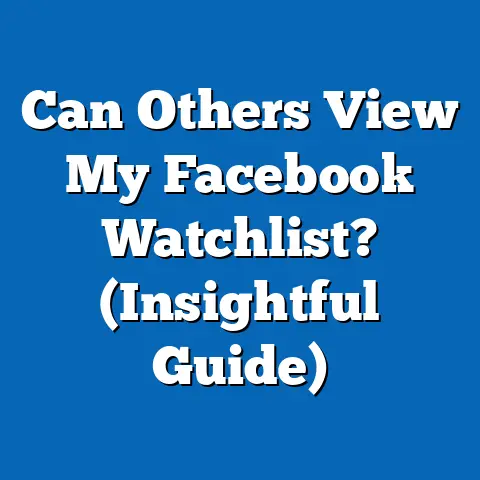Gen Z DitchingFacebook
The Great Exodus: Gen Z’s Departure from Facebook and Its Societal Ramifications
Just as Aeneas fled the ruins of Troy in Virgil’s epic to forge a new destiny, Generation Z is abandoning the digital battlements of Facebook, seeking fresher pastures in the ever-evolving landscape of social media. This modern exodus reflects not just a shift in platform preferences but a deeper generational reorientation toward authenticity, privacy, and rapid innovation. In this article, we delve into why Gen Z—born roughly between 1997 and 2012—is turning away from the platform that once dominated global connectivity, and what this means for society at large.
Gen Z’s defining characteristics play a pivotal role in this migration. They are digital natives, having grown up with smartphones and social algorithms as constants in their lives, which fosters a savvy yet skeptical approach to online interactions.
This generation prizes mental health, social justice, and personalized experiences, often rejecting platforms that feel corporate or inauthentic.
As we proceed, we’ll examine how these traits, combined with broader historical forces, have accelerated their departure from Facebook.
Defining Generation Z: Characteristics, Nuances, and the Digital Milieu
Generation Z is often characterized by its unparalleled digital fluency, shaped by a world where technology is not a novelty but a necessity. Born in an era of rapid technological advancement, from the dot-com boom to the smartphone revolution, Gen Z members have internalized the internet as an extension of their identity.
This fluency manifests in their preference for platforms that offer immediacy, visual storytelling, and community-driven content, such as TikTok and Instagram.
However, it’s crucial to acknowledge the diversity within Gen Z; not all individuals fit a monolithic mold, as factors like geography, socioeconomic status, and cultural background influence their behaviors.
Key traits include a strong emphasis on mental health awareness, driven by events like the global mental health crisis amplified during the COVID-19 pandemic. Gen Z is more likely to prioritize platforms that support well-being over those that encourage endless scrolling and comparison.
They are also notably activist-oriented, influenced by movements like Black Lives Matter and climate strikes, which demand transparency and ethical practices from tech companies.
Economic factors, such as entering a job market marred by the Great Recession’s aftermath and the 2020 economic downturn, have fostered a pragmatic, value-driven mindset that questions the monetization tactics of platforms like Facebook.
Social and cultural influences further define Gen Z. This generation values authenticity and diversity, rejecting the polished, performative nature of early social media.
For instance, qualitative studies from Pew Research Center highlight that Gen Z is more diverse ethnically and racially than previous generations, which shapes their demand for inclusive digital spaces.
Yet, we must avoid oversimplification: while many Gen Z users seek genuine connections, others navigate platforms strategically for professional networking or entertainment, illustrating the generation’s internal heterogeneity.
Technological factors, such as the rise of artificial intelligence and short-form video algorithms, have accelerated Gen Z’s shift. Unlike Millennials, who embraced Facebook for its broad social networking capabilities, Gen Z favors apps with ephemeral content and advanced privacy controls.
Economic pressures, including data privacy scandals, have made them wary consumers.
In contrast to Baby Boomers or Gen X, who might view social media as a tool for information, Gen Z sees it as a dynamic, interactive ecosystem that must align with their values.
However, significant events began to erode Facebook’s appeal, particularly for emerging generations. The 2016 U.S. presidential election and the subsequent revelations of Russian interference highlighted the platform’s role in spreading misinformation, eroding trust among younger users.
In 2018, the Cambridge Analytica scandal exposed how data from millions of users was misused for political advertising, amplifying privacy concerns at a time when Gen Z was becoming more digitally literate.
These incidents were pivotal, as they occurred during Gen Z’s formative years, shaping their skepticism toward platforms that prioritize profit over user welfare.
Historically, Facebook’s dominance mirrored broader societal shifts, including the globalization of the internet and the rise of mobile technology. The platform peaked in the mid-2010s, aligning with Millennials’ peak usage, but as Gen Z came of age, economic factors like the gig economy and social isolation during the COVID-19 pandemic pushed them toward alternatives.
Culturally, the platform’s shift toward algorithmic feeds and targeted ads clashed with Gen Z’s preference for organic, less commercialized interactions.
Comparatively, earlier generations like Millennials adopted Facebook during its innovative phase, viewing it as a revolutionary tool for connection, whereas Gen Z inherited a more mature, scrutinized version.
The historical interplay of technological innovation and economic downturns has been crucial. For instance, the 2008 recession delayed many Gen Z parents’ financial stability, leading to children growing up with hand-me-down devices and a critical eye toward corporate entities.
Social factors, such as increasing awareness of cyberbullying and mental health issues documented in reports from the American Psychological Association, further distanced Gen Z from Facebook’s environment.
Thus, the platform’s evolution from a college networking site to a data-driven giant set the stage for Gen Z’s strategic disengagement.
The Shift Away from Facebook: Reasons and Underlying Dynamics
Gen Z’s ditching of Facebook is not a whim but a calculated response to a confluence of factors. Quantitative data from Statista indicates that by 2023, only 31% of U.S. adults aged 18-29 (predominantly Gen Z) used Facebook daily, a sharp decline from 71% in 2014.
This trend is driven by privacy concerns, with 79% of Gen Z respondents in a 2022 Pew Research survey citing data breaches as a major reason for leaving.
Platform fatigue also plays a role, as Gen Z finds Facebook’s interface outdated compared to the dynamic, visual appeal of TikTok, which boasts over 1 billion active users, many from this generation.
Technological advancements have accelerated this shift. Gen Z prefers apps with advanced features like disappearing messages and AI-driven personalization, which Facebook’s core platform lacks.
For example, Snapchat and Instagram Stories offer ephemeral content that aligns with Gen Z’s desire for authenticity and reduced digital footprints.
Economic factors, such as the cost of data privacy in an era of surveillance capitalism, make Gen Z more discerning; they are less tolerant of ads and algorithms that exploit personal information for profit.
Social and cultural dynamics further explain the exodus. Gen Z values community and social justice, and Facebook’s association with misinformation and polarization—exacerbated by events like the January 6, 2021, Capitol riot—has repelled them.
Qualitative insights from a 2021 study by the Journal of Adolescent Health reveal that Gen Z users feel Facebook promotes superficial interactions, contrasting with their preference for meaningful, niche communities on platforms like Discord.
In contrast to Millennials, who used Facebook for broad networking, Gen Z seeks micro-communities that foster belonging without the baggage of legacy issues.
Nuances within Gen Z must be acknowledged. Not all members are ditching Facebook entirely; some use it for family connections or professional purposes, particularly in regions with limited access to alternatives.
For instance, in developing countries, Facebook remains a primary tool due to its integration with free internet services.
This diversity underscores that the shift is influenced by intersectional factors like race, gender, and geography, avoiding broad generalizations.
Comparative Analysis: Gen Z Versus Other Generations
Comparing Gen Z with predecessors highlights both continuities and divergences in social media use. Millennials (born 1981-1996) were early adopters of Facebook, integrating it into their social fabric during its growth phase in the late 2000s.
They valued its utility for maintaining long-distance relationships and professional networking, as evidenced by data from LinkedIn, where Facebook served as a gateway.
In contrast, Gen Z views Facebook as antiquated, preferring platforms that offer faster, more creative expression, though both generations share a digital savviness.
Avoiding stereotypes, it’s important to note that not all Millennials are tied to Facebook; many have also migrated to newer apps for similar reasons. Gen X (born 1965-1980) often uses Facebook for practical purposes like event planning, influenced by their more cautious approach to technology shaped by the pre-internet era.
Baby Boomers (born 1946-1964) may see Facebook as a novel tool for family updates, but their engagement is typically less intensive.
Gen Z’s departure, therefore, reflects a generational acceleration in adaptation, driven by their immersion in a hyper-connected world.
Economic and cultural contrasts are evident. While Millennials navigated the 2008 recession by leveraging Facebook for job searches, Gen Z faces gig economy instability and prioritizes platforms that support side hustles, like Instagram for influencers.
Socially, Gen Z’s emphasis on mental health stems from witnessing Millennials’ burnout, leading to a rejection of Facebook’s stress-inducing features.
Technologically, Gen Alpha (born after 2012) may build on Gen Z’s preferences, potentially favoring even more immersive tech like virtual reality, though this remains speculative.
Quantitative and Qualitative Evidence: Trends and Insights
Data underscores the scale of Gen Z’s shift. According to a 2023 report by eMarketer, Facebook’s U.S. user base among 18-24-year-olds dropped by 23% between 2019 and 2023, while TikTok’s grew by 325% in the same demographic.
Qualitative research, such as interviews in a 2022 study by the Oxford Internet Institute, reveals themes of “algorithmic distrust” and “privacy fatigue” among Gen Z participants.
These findings combine to paint a picture of a generation actively curating their digital lives.
Expert perspectives add depth. Sociologist danah boyd argues in her book “It’s Complicated” that Gen Z’s behaviors are adaptive responses to a surveillance-heavy environment, emphasizing the need for platforms that empower users.
Psychologist Jean Twenge, in “iGen,” correlates increased social media use with rising anxiety but notes that Gen Z’s selective abandonment of Facebook may mitigate these effects.
Statistics from the World Economic Forum indicate that 64% of Gen Z prioritize data privacy over social connectivity, a higher rate than any previous generation.
Societal Implications: Impacts on Culture, Workplace, and Beyond
The exodus has profound societal implications. Culturally, it signals a move toward fragmented, niche online communities, potentially reducing the spread of misinformation that plagued Facebook.
However, this could also lead to echo chambers on platforms like TikTok, exacerbating polarization.
In the workplace, Gen Z’s preferences influence corporate strategies; companies are adapting by shifting advertising budgets, with Meta reporting a 10% drop in ad revenue from young users in 2023.
Socially, the shift raises mental health concerns. While leaving Facebook might reduce exposure to cyberbullying, it could isolate users from broader networks, as noted in a 2022 CDC report linking social media fragmentation to loneliness.
Economically, businesses reliant on Facebook for marketing face challenges, with small enterprises seeing a 15% decline in engagement from Gen Z audiences.
Politically, the migration may alter civic engagement, as Gen Z turns to platforms for activism, potentially bypassing Facebook’s role in movements like #MeToo.
Acknowledging nuances, the implications vary globally. In the Global South, where Facebook remains dominant, the shift could widen digital divides.
This generational dynamic underscores the need for balanced policies on data protection and digital literacy.
Expert Opinions and Future Outlook
Experts like Shoshana Zuboff, author of “The Age of Surveillance Capitalism,” warn that Gen Z’s actions could pressure tech giants to reform, but uncertainties persist.
Zuboff suggests this exodus might spur innovation in ethical AI, yet economic incentives could hinder change.
Other scholars, such as Nancy Baym from Microsoft Research, advocate for platforms that foster genuine connections, predicting a hybrid future.
Looking ahead, Gen Z’s preferences may shape emerging technologies like the metaverse, though challenges like accessibility remain.
As they enter leadership roles, their values could drive more sustainable digital ecosystems.
However, uncertainties—such as regulatory shifts or new platform monopolies—mean the future is fluid.
Conclusion: Navigating the Digital Horizon
In summary, Gen Z’s ditching of Facebook represents a pivotal generational shift, driven by characteristics shaped by historical events and societal forces. This movement has far-reaching implications for culture, economy, and mental health, highlighting the need for adaptive strategies.
As we look forward, embracing the uncertainties of technological evolution will be key to fostering inclusive digital spaces.
Ultimately, this exodus underscores the dynamic nature of generations, reminding us that change, like Aeneas’s journey, leads to new beginnings.






